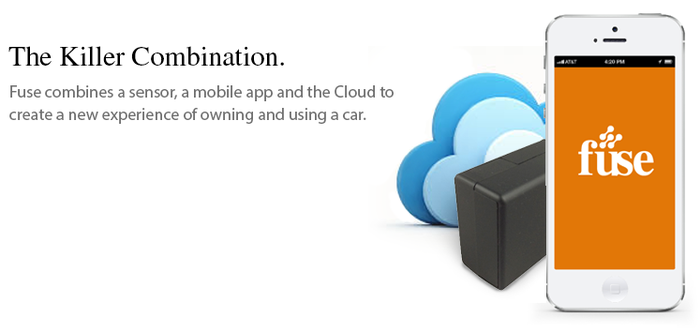 Fuse is more than a device and a smartphone app to go with it. The world is full of those already.
Fuse is more than a device and a smartphone app to go with it. The world is full of those already.
Fuse is the first product in the digital age that can blow up every one of the silos built to trap personal data and limit personal independence.
Fuse does that by putting you — literally — in the driver’s seat of your life.
Fuse is also the first product to show how your own “Internet of things” can be fully yours — and truly integrated in ways that work for you — without requiring that you become a serf in some company’s castle.
Fuse is an invention of Phil Windley and his team at Kynetx, who are committed to the freedom, independence and self-empowerment of individuals: to making you a driver of your own life and your own stuff, and not just a “user” of others’ products and services. And to letting you be “social” in your own ways, as you are in your everyday life outside the Web.
This is why Fuse is Net-native, not Web-native (though it uses the Web too). This matters because the Net was created as a decentralized World of Ends, where every node can be sovereign and independent, as well as zero functional distance from every other node. The Web could have been the same, but instead it grew on top of the Net, along lines defined by client-server architecture (aka calf-cow), which makes everything there centralized: you’re always a client, and always at the mercy of servers. This is why the browser, which started out as a vehicle on the Information Superhighway, turned into a shopping cart that gets re-skinned at every commercial site you visit, and carries tracking beacons so you can be a better target for advertising.
Fuse drives under and away from that model, which has become terribly corrupted, and toward what Bob Frankston (sitting next to me as I write this) calls the “boundary less” and “permissionless” world.
If Fuse succeeds, it will be a critical first step toward building the fully independent vehicle for the fully independent human being on that same old Information Superhighway. And it will do that that by starting with your own car.
There are only a few hours left for the Fuse Kickstarter campaign. The sum required is only $60,000, and contributions have passed $50,ooo already. So help put it over the top. It could be the most leveraged investment you’ll ever make in the future of personal independence in the networked world.
More background in my first post on Fuse.
[Later, same day…] Goal reached:
294 backers$63,202 pledged of $60,000 goal
Leave a Reply